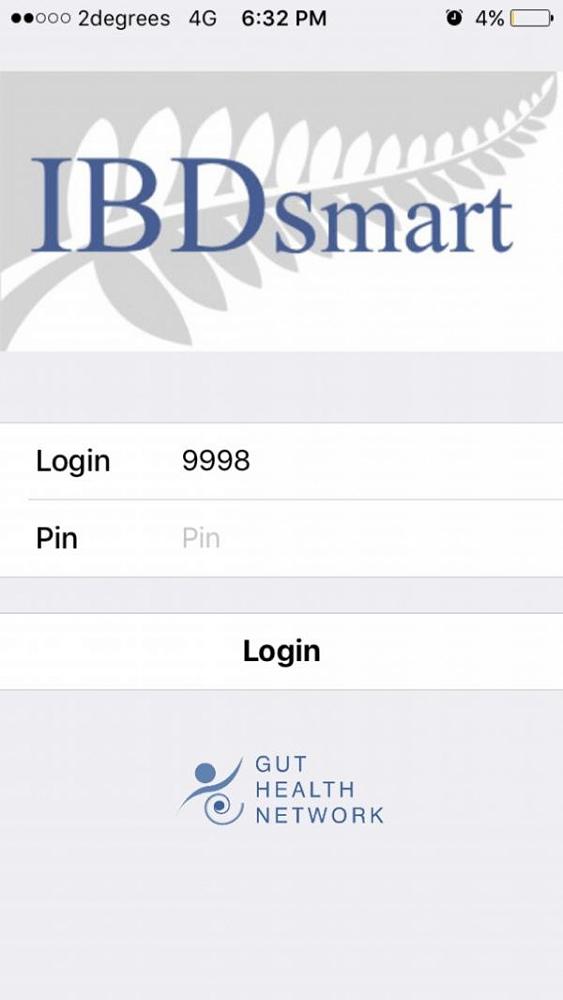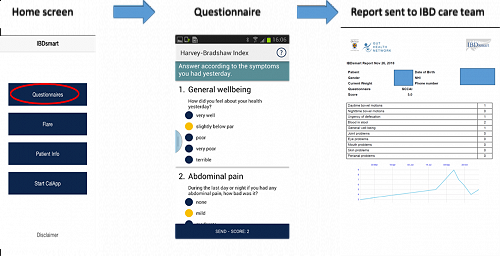
Article for CCNZ newsletter about IBDsmart
The demand for gastroenterologists and their time is ever increasing.
Factors such as bowel cancer screening, increased bureaucracy and increasing prevalance of GI diseases (including IBD) take up more of their time than ever. Coupled with the fact the number of gastroenterologists is not increasing to match this increased demand, their time for outpatient care is becoming scarcer. Scarcity of gastroenterological care is even more pronounced in rural areas. These factors all lead to the need for greater efficiency in how services are allocated to gastroenterological patients generally and IBD patients specifically.
Telemedicine, which is the use of technology to facilitate communication between doctor and patient when they are geographically apart, can be used to increase efficiencies in gastroenterological outpatient care. mHealth is a specific part of telemedicine and is related to how mobile phones can be used in healthcare, including facilitating communication between doctor and patient. This is very relevant given that about 9 in 10 New Zealanders now own a smartphone.
Noting the ubiquitousness of mobile phones in everyday life, IBDsmart has been created and developed by Associate Professor Michael Schultz, other gastroenterologists, software developers, IBD Nurses, and myself. IBDsmart monitors symptoms and allows these to be communicated with your physician or IBD Nurse remotely (see picture). The symptoms are recorded using questionnaires that have proven to measure symptom severity accurately. Generally speaking, if you send a high score that indicates you are symptomatic you will be booked in for a face-to-face appointment whereas if you send a low score that indicates you are asymptomatic you will not be booked for an appointment (unless a reason outside disease activity indicates this, such as drug monitoring or abnormal blood test results). The traditional method of allocating outpatient appointments takes guesswork: does this patient need to be seen 1, 3, 6, or 12 months from now? IBDsmart takes a lot of the guesswork away.
A recent nationwide study performed in Dunedin, Christchurch, Hutt Valley, and Waitemata showed IBDsmart alongside a faecal calprotectin app called IBDoc® to be acceptable and usable to patients and gastroenterologists. Most importantly, this study reported IBDsmart could replace some outpatient appointments without leading to worse quality of life or more flares for the patient. This has important implications for patients who live rurally and who find it difficult to get to outpatient appointments due to time and work commitments. It also frees up critical clinic time for patients who need to be seen. It should be noted that IBDsmart is a voluntary program for patients and gastroenterologists.
However, IBDsmart is not just about increasing efficiency and reducing costs. Technology can be our friend. A person working with a computer beats a lone computer or lone person at Chess. The same analogy can be used for disease management. Monitoring our own symptoms is important because sometimes we forget what it feels like to feel well, especially when we have been ill for a long time. In other words, IBD patients often experience a phenomena called “response shift” wherein they think they are experiencing “wellness” when they are actually experiencing what other people would call “unwellness.” This is especially true of patients who have been diagnosed for a long time. Obtaining a score for our symptoms on a regular basis allows us to know how bad our symptoms are more objectively. This is important given that it is easier for the gastroenterologist to prescribe optimal treatment when the patient reports their symptoms accurately.
IBDsmart is promoted by CCNZ and will be available in early 2019. In order to use it, you should contact ibdsmart@otago.ac.nz to request a link to download the app. Then set up a username and pin before asking your physician and/or IBD Nurse to participate.
Once it is downloaded, you can enter your answers and obtain your symptom score. You can do this as often as you wish.
Gallery

